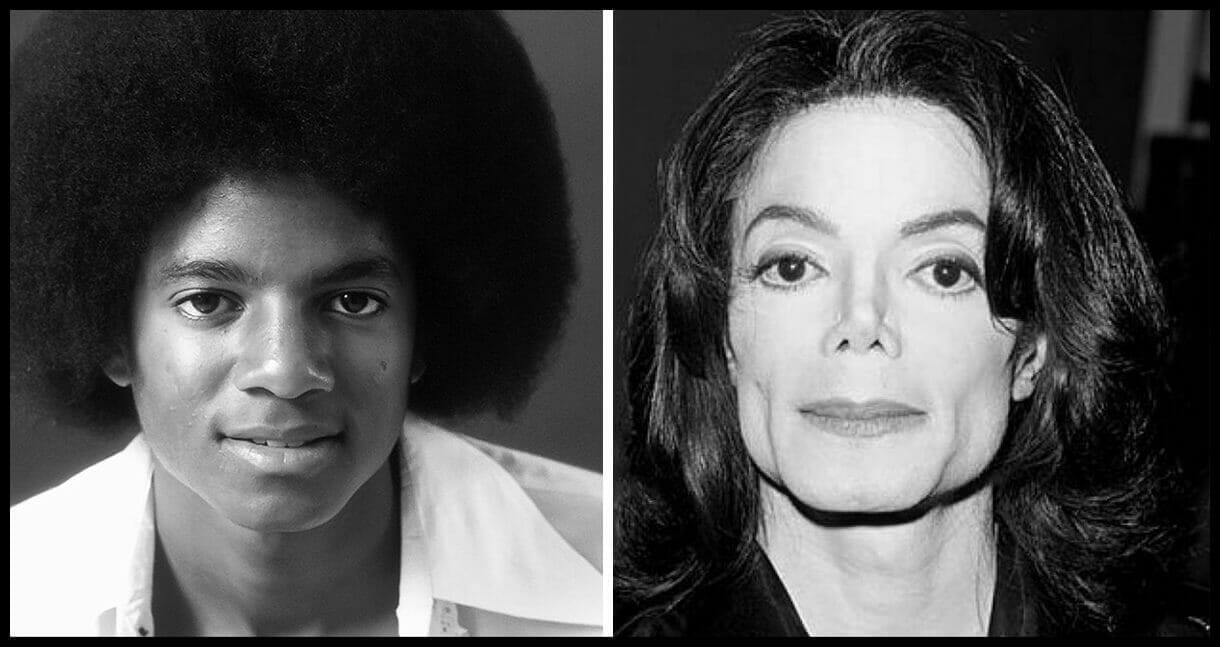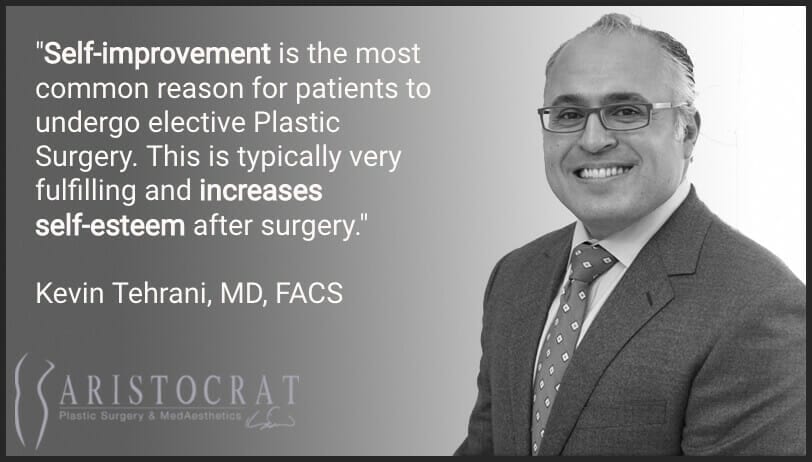Is Plastic Surgery Good For You?
We live in confusing times.
On one hand, men and women are bombarded with beauty standards that are often impossible to match. And it’s not just limited to the highlight reels of our friends on social media: we see unrealistic beauty images almost everywhere we look, apart from a mirror. It is jokingly said that the best quality of a desired actor today is a desirable body.
At the same time, plastic and cosmetic surgery is still often painted in negative limelight in the Western world. Most celebrities avoid talking about their procedures, and those who do come forward often get mixed feedback. Plastic surgery, still, is considered a borderline choice in terms of ethics and morality.
It is not difficult to trace the roots to the negative image of the surgeon’s knife.
Extreme, over-the-top, appalling cases that have received tons of media attention are arguably one of the biggest contributors to the negative public image plastic and cosmetic surgeons are trying to battle.
Some people still associate plastic surgery with the Botox filled face of Jocelyn Wildenstein, or the unhealthy fantasy of the King of Pop himself, Michael Jackson.

The reality of the surgeon’s office, however, is very different from how the media portrays it.
Most women that come through our doors do not seek surgeon’s help to make an impression or fulfil a fantasy—they simply want to feel better about themselves. Many of our female patients are mothers who want to restore their youthful appearance. It’s a personal choice for them, not a public one.
It is a mistake to think that a surgeon’s knife means superficial change. Many of the procedures we perform combine aesthetic benefits with functional ones. Breast reduction, for example, provides massive relief for women with large breasts that are slowly giving in to gravity. And tummy tuck—a massive fat reduction, muscle tightening and skin removal procedure—enables men and women to get back into healthy diet and exercise patterns.
Looking into the nature of requested procedures, we see that in the US, most men and women are requesting procedures that drive personal change, not superficial one. Liposuction—one of the most commonly performed fat reduction procedure—is almost impossible to spot with your clothes on. These types of procedures are done for personal reasons.

From a surgeon’s perspective, we are fortunate enough to observe how our services help people transform their lives for the better. We are in a unique position to help them find peace, happiness and success.
In this article, we’ve tried to capture the very essence of plastic surgery, and the scope of its effects on people’s lives. You’ll see that surgical adjustments are so much more than just tabloid headlines.
1. Improved Self Esteem and Confidence
The biggest transformation plastic surgery offers, ironically, is not about appearances at all.
Many men and women who come to our offices are suffering from insecurities—ones that haunt them for years; sometimes, decades. In most cases, all it takes is an ignorant comment about one’s appearance: an aggressive comment your ex-boyfriend made about your nose before breaking up; a weight complex that was molded during countless dinners with your family.
It’s weird, looking at the whole thing from a third-person view. Our patients are not ugly. Your nose doesn’t act as boyfriend repellent. Your butt is not the reason why he broke up with you.
But when we’re at our most vulnerable states—which happens to occur quite a lot in intimate relationships—even the most insignificant remarks can cut deep.
Even worse, these seeds of mental inferiority grow in our minds into big, systematic things. We start associating almost everything to that one little detail someone shot into our system years ago. We start justifying our failures, crediting them to that one tiny body defect. It becomes a part of our personality.
To acknowledge the need for the surgeon’s help, then, means being brutally honest with yourself. It takes courage to do that.
It is difficult to put into words how dramatic the change in one’s self esteem can be once they see their new faces and bodies. In many cases, our patients look good before their procedures, and they look good after.
But, in their minds, they’ve just made the leap from the Ugly Duckling to the Glorious White Swan.

At the same time, appearances do matter in our uber-competitive world. One way to look at one’s appearance is as an indication of a person’s health, wealth and character traits.
For that reason, people with imaginary—or real—body disadvantages often tend to feel less confident in their careers. They feel like there’s a bottleneck of what they can achieve—a limitation directly tied to a certain part of their appearance.
It is truly beautiful to watch people leave our offices feeling full of life and ready to conquer the world. In reality, the change may be negligible, but in their minds, they feel like a completely new person. And then they go ahead and move mountains.
2. Better Relationships
Romantic relationships are complicated, and appearances play a very subtle role in relationships.
One one hand, most relationships are built on much more than just physical attraction. Healthy, lasting relationships truly are partnerships. At the beginning, partners often choose each other with a hint of strategic thinking in mind: successful couples complement each other’s weaknesses. Later on, partners share responsibilities, and act as stakeholders in a joint venture.
On the other, we’re still very much… Mammals. Physical attraction plays a massive role in every healthy relationship. It is not a secret that couples that have sex more often tend to share more intimacy in their relationships, and thus stay together. And, while definitely not the be-all-end-all factor, physical appearance does matter in marriage, too.

Of course, plastic surgery is not always a celebrated choice for both partners. If you decide to have a procedure, your partner may not react the way you’d expect. They might think you’re doing it because you’re afraid they won’t like you anymore.
In those cases, it is best to communicate clearly that it is a personal decision, and that you’re doing this to make you feel good, and not your partner.
3. More, Better Career Opportunities
It is actually crazy how good looks affect career opportunities.
According to a CNN article, “Attractive people earn about 5 percent more in hourly pay than their average-looking colleagues, who in turn earn 9 percent more per hour than the plainest-looking workers.”
In actual salaries, here’s what the separation looks like: if an average-looking person earned $40,000, their prettiest co-workers would make $42,000 while their least attractive colleagues brought home just $36,400.

One argument why this discrepancy exists is because moving up the career ladder is often very much a social endeavour. Biggest career opportunities usually come in form of cocktail parties and poker nights, not Excel sheets or balance reports.
Naturally, to get into those cocktail parties, it doesn’t hurt to look the part. Who doesn’t want to invite the pretty girl to a party?
However, do not fall into the trap of thinking that good looks will deliver the bigger paycheck on their own.
Ultimately, it is not the looks themselves that will provide the opportunities you seek, but your newfound self-confidence and drive. Your new you will become a vehicle you’re proud to take for a spin, and people will respond.
4. Trampoline to Live a Healthier Life
One of the most positive changes we see after our patients leave the office is their return to a healthier lifestyle.
The biggest motivator is the fact that proper exercise is required to keep your new shape. For most procedures, especially ones involving fat reduction, it is a must to exercise regularly after the procedure. Otherwise, the patient simply drifts back to their original shape, slowly but surely. Most people feel like they’ve gone through too much to give up at that point.
However, there are more nuanced motivators as well.

New mothers, for example, experience changes in their body that are somewhat permanent, and will not go back to “normal” on their own. Stretching of the abdominal muscles while carrying a baby, skin sagging, and the extra fat can be very difficult to battle with diet and exercise alone, if not impossible.
In those cases, procedures like tummy tuck can provide that initial boost of motivation they need to start getting back on track.
Many people suffer from certain body shape features that simply do not respond to diet and exercise. Needless to say, seeing years’ worth of work go in vain is never an encouraging outcome. Liposuction is a procedure that can tackle stubborn fat pockets with dramatic efficiency. Once patients see the the bulge they’ve been trying to get rid of for years is gone, they light up with enthusiasm to keep improving their shape.
Final Verdict: Plastic Surgery Is So Much More than Just Surgery
The transformations our patients experience are deep, and go far beyond just superficial adjustments.
For some, it’s a way to overcome their insecurities and rebuild their self esteem. Even minor adjustments can have a dramatic effect on one’s self-perception.
For others, it’s a way to get back into the rhythm in terms of health and lifestyle. Keeping up with exercise plans and diet regimens can be difficult without seeing results, and the surgeon’s knife may provide just the boost of motivation a patients needs to either start or continue exercising.
In all of those cases, plastic surgery is a vehicle of profound personal—and interpersonal—change.
Don’t let the social stigma dictate what you should, or shouldn’t do.

